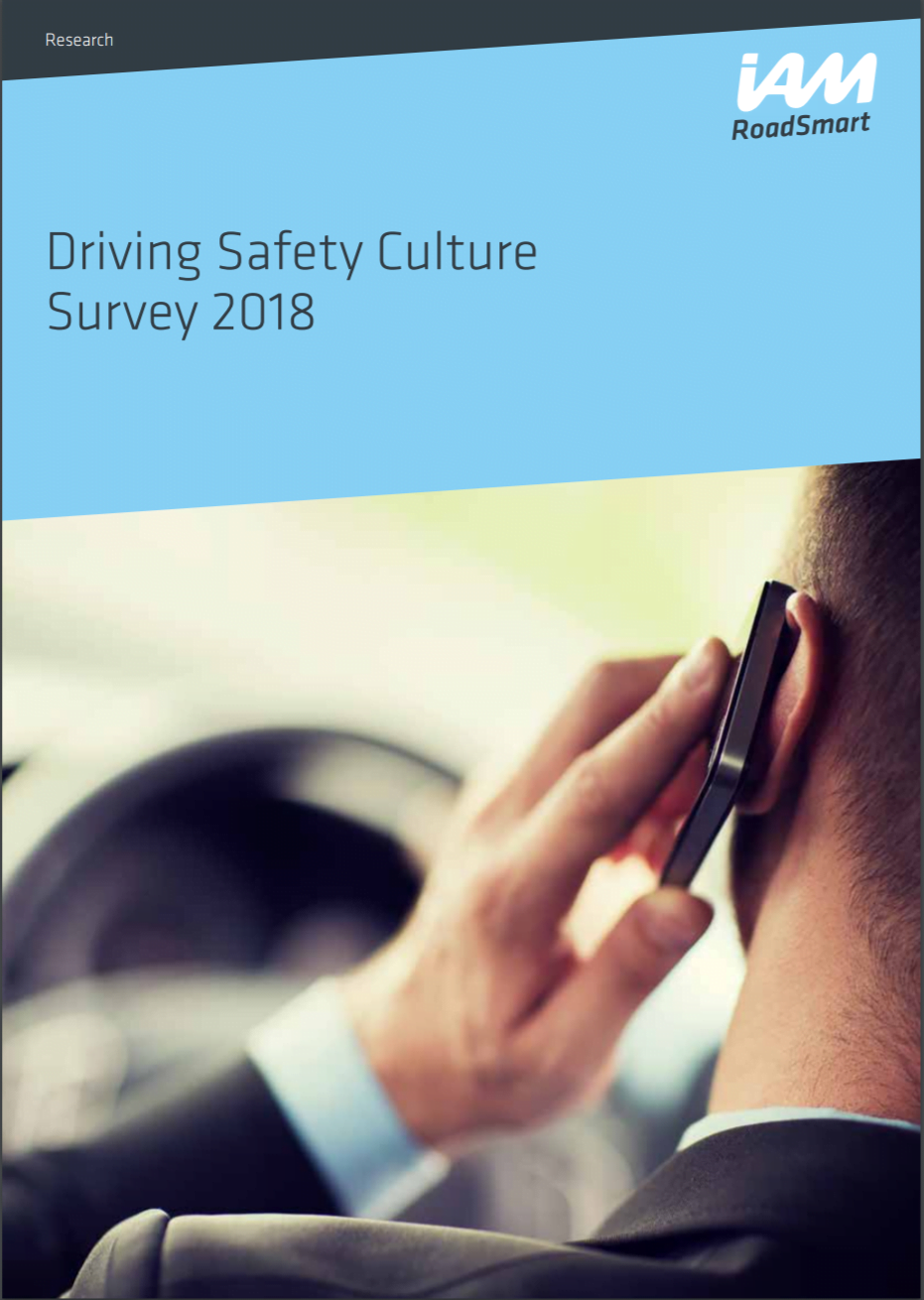
IAM RoadSmart's fourth annual survey examines the public perceptions of the shifting landscape of UK road safety
As part of the fulfilment of our road safety objectives, IAM RoadSmart’s Policy & Research team frequently carry out research projects, helping to focus the organisation’s attention on the key road safety issues of importance to the motoring public. The findings of this research inform our lobbying and campaign work, as well as contributing to the ongoing development of our driver training programmes, as they help us to ensure that they are appropriate for the current landscape of UK motoring.
For the fourth year, our Driving Safety Culture Survey puts the spotlight on the real issues that motorists face when taking to the roads today, and discovers which are of greatest concern. It also takes a look at the prevailing attitudes towards various aspects of driver behaviour, offences and enforcement.
Some key findings of the 2018 survey:
- Other drivers checking their social media is perceived as the single biggest safety threat, closely followed by drivers who text or email while driving
- Nearly two-thirds of road users believe that drink- and drug-driving is a growing problem
- More than three quarters see congestion as having worsened noticeably over the last three years
- 90% of drivers had been affected by potholes in some way in the last year, with 12% experiencing vehicle damage as a result of potholes
- Attitudes towards speeding, drink-driving and mobile phone use have shown very little change, with similar numbers of drivers admitting to doing these things, or finding them acceptable, across the last three years’ surveys
- Nearly two thirds of respondents support the idea of encouraging drivers to improve their skills through post-licence training

What does all of this mean for business drivers? Many of those who drive for work cover high mileages and spend a great deal time out on the roads. They are therefore arguably affected by these issues and concerns to a greater degree than the average motorist. We already know from Department for Transport figures that nearly a third of road fatalities involves a driver on a work journey.
What does it mean for employers? The lack of change in driver attitudes over time highlights just how difficult it can sometimes be to persuade individuals to reflect on their own behaviour despite apparent changes in their environment, which can cause frustration for businesses trying to improve the behaviour of certain individual drivers. Many of the businesses we work with have found that establishing their own safety culture is the first step in influencing driver attitudes, by making poor driving behaviour unacceptable and treating safer driving as the norm, rather than simply criticising individual drivers whenever they receive a speeding ticket, for example.
Encouragingly, our surveys have consistently shown that drivers are largely in favour of the idea of post-licence training, so you can be confident that driver improvement programmes are likely to receive support. Our team are more than happy to work with you in putting together a fleet policy that places emphasis on good driver behaviour, and in communicating it with your staff in a positive, engaging way.


